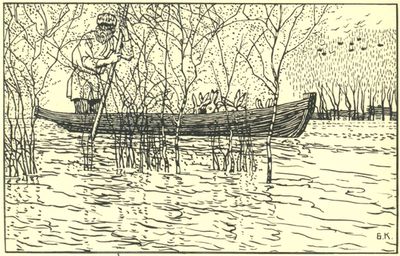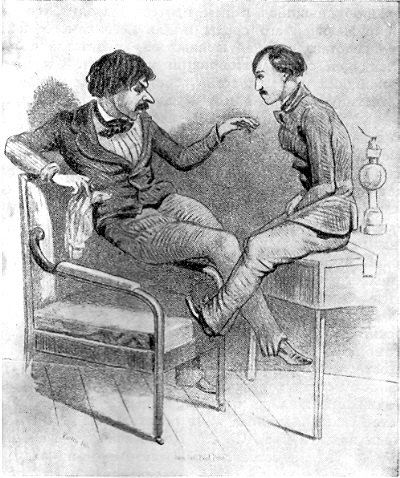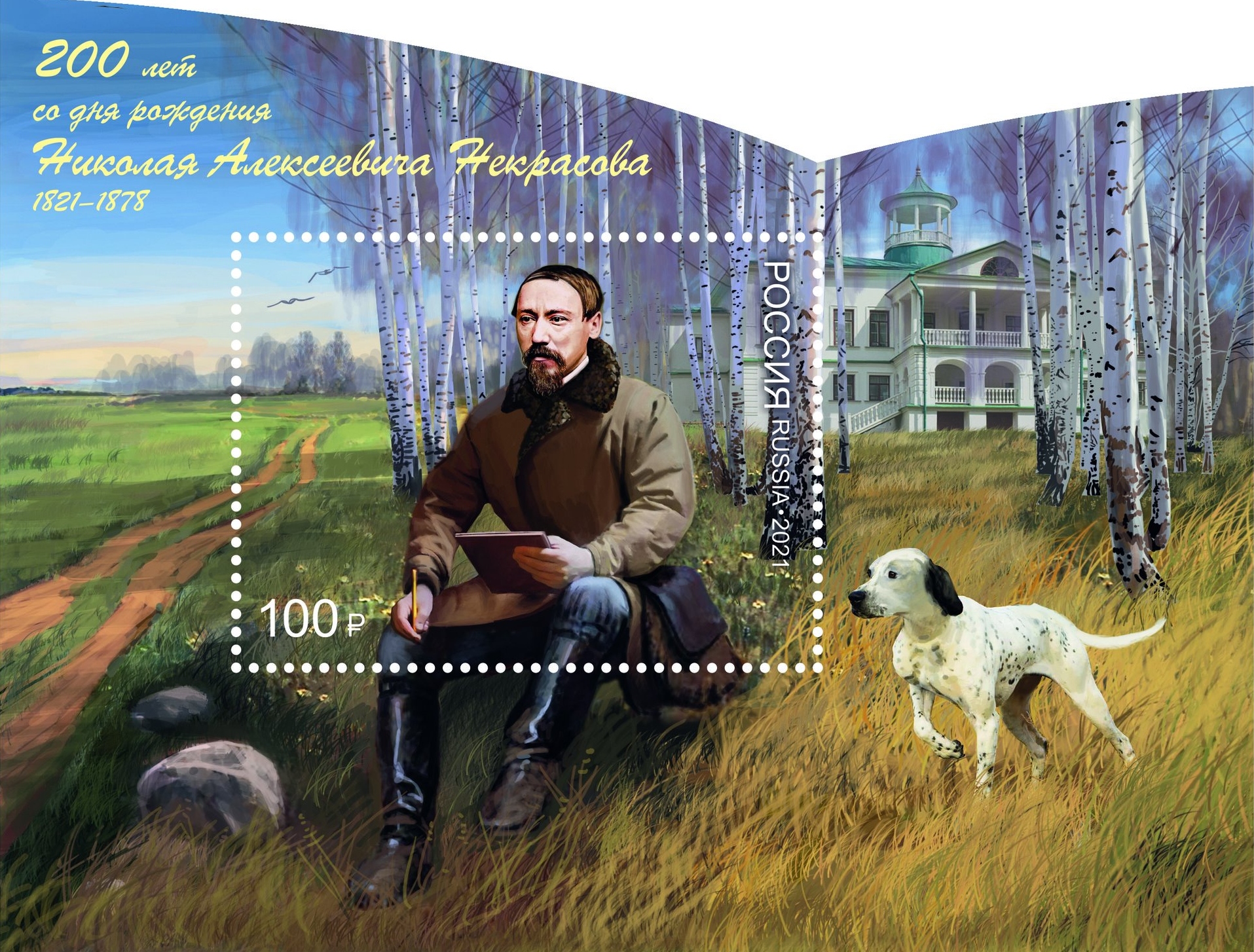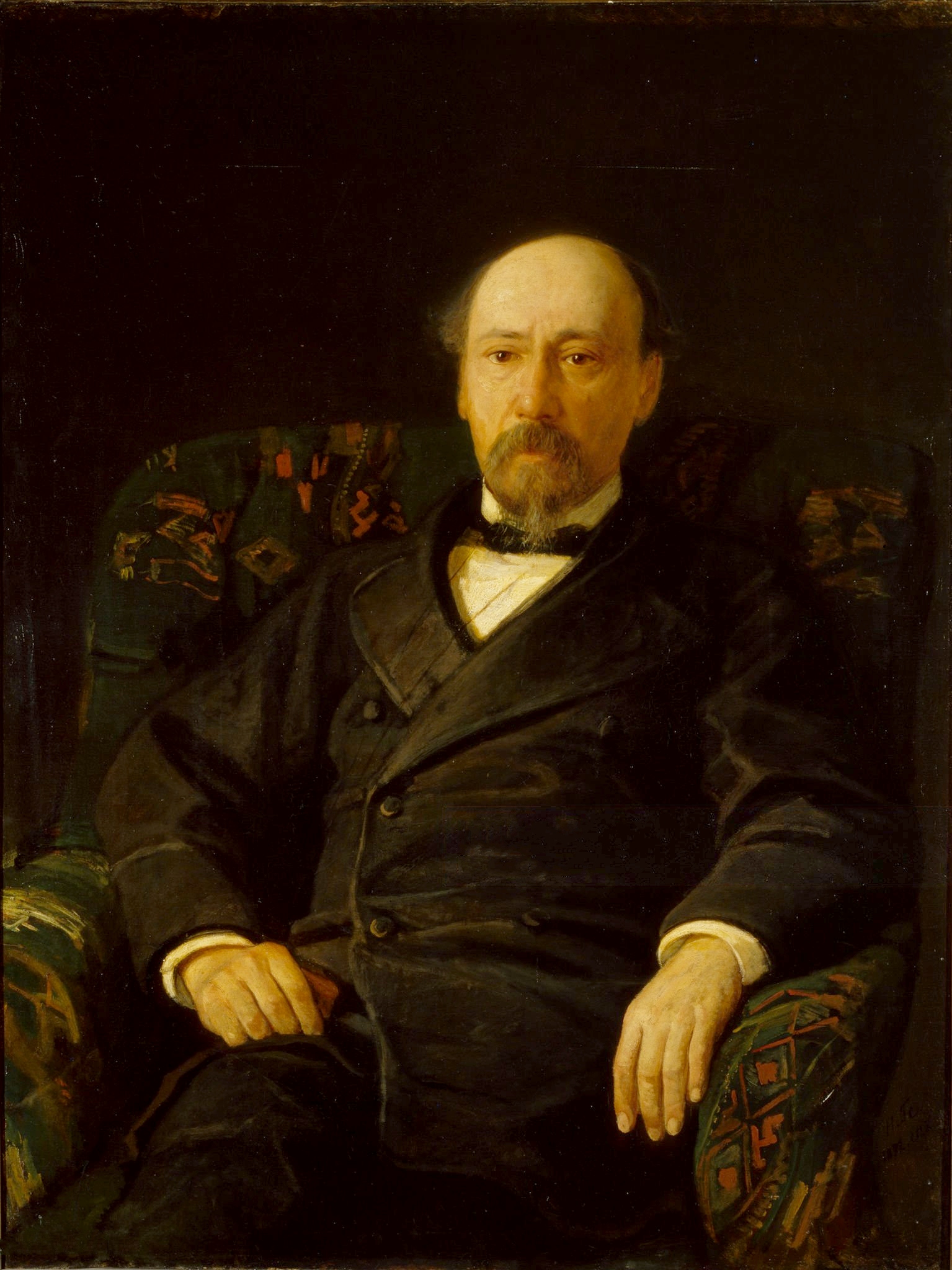Nekrasov, Nikolaĭ Alekseevich, 1821-1878
Enlarge text Shrink text- His Who can be happy and free in Russia ... 1917.
- Encyc. Brit.,15th ed., micro., v. 7, p. 247 (Nekrasov, Nikolay Aleksevevich)
- Encyc. Amer.,v. 20, p. 85 (Nekrasov, Nikolai Alekseyevich)
- Colliers,v. 17, p. 293 (Nekrasov, Nikolai Alexeevich)
- N. A. Nekrasov i ego vremi︠a︡, 1975-:v. 1, t.p. (N. A. Nekrasov)
- Wei, H.N. Nieh-kʻo-la-so-fu chʻu tʻan, 1985:t.p. (Nieh-kʻo-la-so-fu)
- LCN
- ראה: החלקה הנשכחת
Nikolay Alexeyevich Nekrasov (Russian: Никола́й Алексе́евич Некра́сов, IPA: [nʲɪkɐˈlaj ɐlʲɪkˈsʲejɪvʲɪtɕ nʲɪˈkrasəf] , 10 December [O.S. 28 November] 1821 – 8 January 1878 [O.S. 27 December 1877]) was a Russian poet, writer, critic and publisher, whose deeply compassionate poems about the Russian peasantry made him a hero of liberal and radical circles in the Russian intelligentsia of the mid-nineteenth century, particularly as represented by Vissarion Belinsky and Nikolay Chernyshevsky. He is credited with introducing into Russian poetry ternary meters and the technique of dramatic monologue (On the Road, 1845). As the editor of several literary journals, notably Sovremennik, Nekrasov was also singularly successful and influential.
Read more on Wikipedia >
 Personality
Personality
















